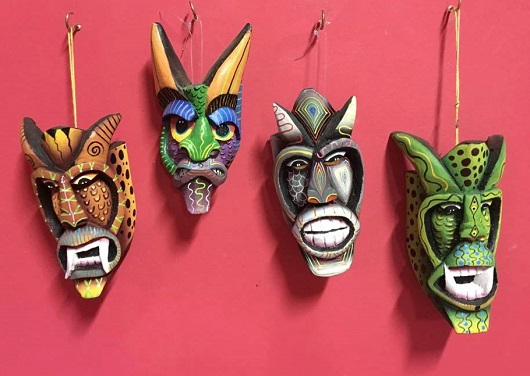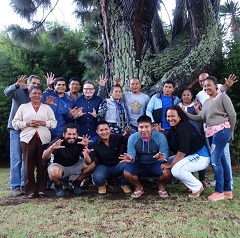Promoting museum participation in remote Scotland, Latin America and the Caribbean

The pivotal role of museums in helping under-represented communities stake a place in history will take centre-stage in a new EU-funded project, led by the University of St Andrews.
Known as EU-LAC-MUSEUMS (Concepts, Experiences and Sustainability in Europe, Latin America and the Caribbean), the idea was conceived during a meeting of ICOM (the International Council of Museums) in Paris and will include studies into female migration between Caribbean islands and an international touring exhibition on art and migration, as well as questions of community empowerment and sustainability in remote areas.
Leading the project will be Dr Karen Brown, Director of the Museums, Galleries and Collections Institute in the School of Art History at the University of St Andrews. Over four years she will lead a team working with researchers and policy makers in Scotland, Portugal, Spain, Costa Rica, Chile, Peru and the West Indies to investigate how museums can help protect heritage, particularly for remote and island locations.
Museums involved include Ceumannan – the Skye Ecomuseum in Scotland managed by Staffin Community Trust, and the Rey Curré Museo Comunitario in Costa Rica, run by the native Boruca people. Both are open-air museums encouraging visitors to explore the natural landscape and traditional structures. Ultimately, the project aims to develop models of best practice that can be used for local development, and the protection of cultural heritage.
Recently returned from strategic meetings in the University of the West Indies, Dr Brown said: “It is a tremendous privilege for St Andrews to be coordinating this new international museums project. Our collaborative research into cross-cutting issues including Sustainability, Migration, Regional Integration and Gender will inform an important moment for museums internationally in the light of UNESCO’s recent Recommendation on the Protection and Promotion of Museums and Collections, and ICOM’s new definition of a museum for 2019.”
The project has received funding from Horizon2020, the EU’s largest research and innovation programme. As part of the project, the university’s Open Virtual Worlds team will create a Virtual Museum of Migration History, and produce 3D scans of artefacts from remote museums in each country, selected and interpreted by the local communities.
In addition, the EU-LAC Youth Exchange programme aims to foster long-term relations and mutual understanding between regions.
 Youth Programme worker James Brown of the University said: “EU-LAC-MUSEUMS will empower young people from the remote communities of Isle of Skye (Scotland), Penafiel (Portugal), Rey Curré and Boruca (Costa Rica) to discuss and share their unique cultural heritage.
Youth Programme worker James Brown of the University said: “EU-LAC-MUSEUMS will empower young people from the remote communities of Isle of Skye (Scotland), Penafiel (Portugal), Rey Curré and Boruca (Costa Rica) to discuss and share their unique cultural heritage.
“Building their confidence through workshops, the young people will engage in a bi-regional youth exchange, creating links not just between countries but also communities. Using social media to document their journey, the young people will share their experience with not just their community but the world.”
The 30 international researchers and museum professionals involved in EU-LAC-MUSEUMS will travel to St Andrews in November 2017 where they will participate in an academic symposium, public debate and a Youth Award ceremony, including a public lecture on Friday 24th November by Alissandra Cummins of UNESCO.
Captions
Top (and previous pages): Traditional Borucan Masks from Costa Rica
Bottom: Jamie Brown with Costa Rican Community Volunteers
Background
 EU-LAC-MUSEUMS was conceived under the auspices of ICOM (the International Council of Museums) and has received funding from Horizon2020, the EU’s biggest research and innovation programme.
EU-LAC-MUSEUMS was conceived under the auspices of ICOM (the International Council of Museums) and has received funding from Horizon2020, the EU’s biggest research and innovation programme.
More information is available on the Staffin Community Trust, the EU-LAC-MUSEUMS and the ICOM websites.
Issued by the University of St Andrews Communications Office, contactable on 01334 467310/2530 or via [email protected].
Category University news